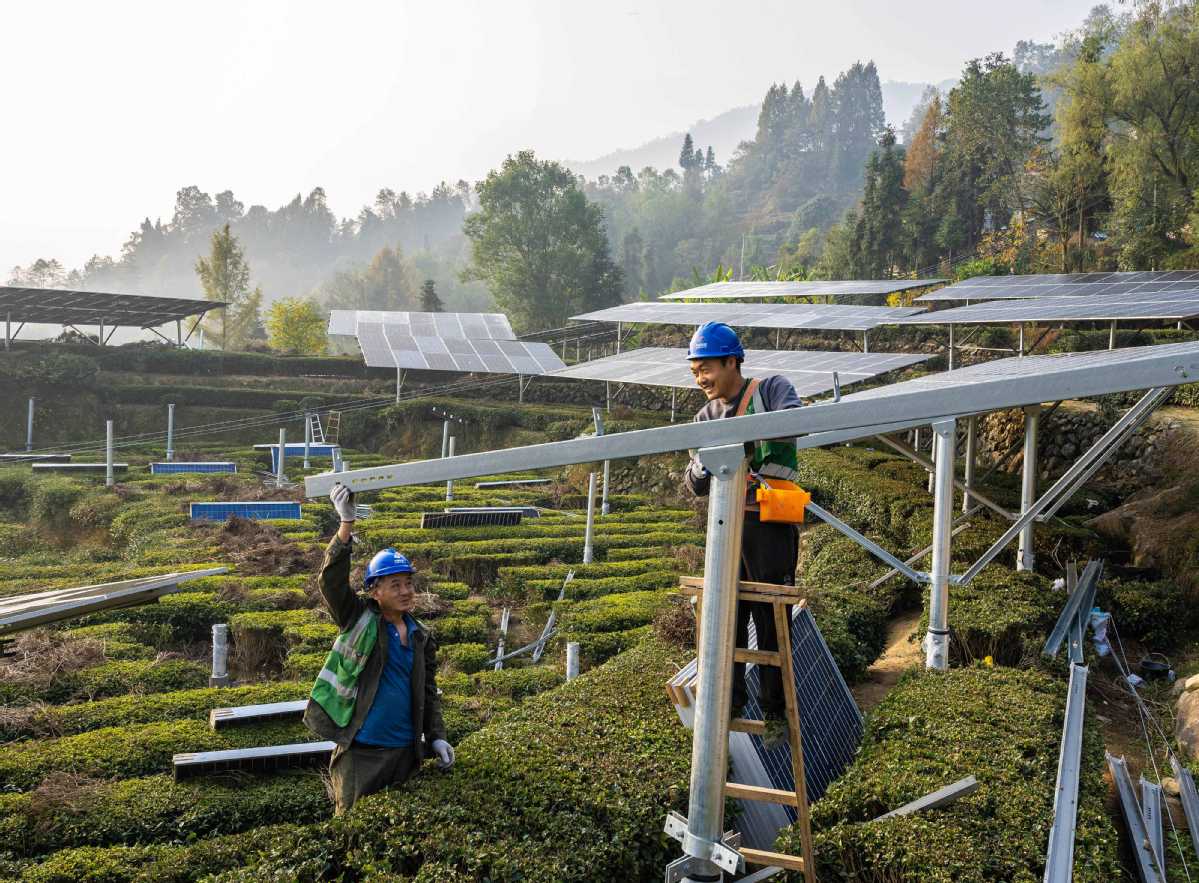Global cooperation key to climate success
International Renewable Energy Agency chief: More efforts needed to address environmental issues, reach carbon goals


Accelerated global action is urgently needed to reach climate goals and cooperation is essential to advance collective efforts, as the world is currently off track in achieving the goal of tripling the installed capacity of renewable energy by 2030, set at the 2023 COP28 climate conference, said Francesco La Camera, director-general of the International Renewable Energy Agency.
Tripling renewables is essential to cut emissions and keep the Paris Agreement goal of limiting global warming to 1.5 C within reach, La Camera said in a recent interview with China Daily.
Against this backdrop, the global capacity of renewable energy needs to surpass 11,174 gigawatts by 2030, with an average annual increase of 1,044 GW from 2024 to 2030, IRENA's analysis showed.
This includes 360 GW of wind power and 578 GW of solar power each year, it said.
Last year, the global addition of renewable power capacity was 473 GW.
"This puts us not on track. We really have to change rapidly the speed and the scale of this transformation, if you want to stay, again, on a pathway that's going to achieve (the Paris Agreement target)," he said.
La Camera reaffirmed that global cooperation is paramount in achieving shared climate goals. He said initiatives to promote information exchange, facilitate market functionality, and reduce tariffs on renewable energy-related goods are essential for fostering collaboration among nations.
Yet, global cooperation in the energy transition sector is facing great challenges, with trade tariffs being an issue.
"It's really difficult to accept this deal that the trade tariffs are more favorable for fossil fuels and related goods, and really not like that for renewable goods. These are really not acceptable. These kinds of things have to change if a country wants to collaborate more closely on going toward the common goal, because climate change is not the fight of one country, but is the fight of the world against this menace for the world itself," La Camera said.
Meanwhile, trade conflicts between countries are also accelerating. In May, the US government decided to impose additional tariffs on imports of Chinese products like electric vehicles, lithium-ion batteries and solar cells on top of existing tariffs. Specifically, the import tax on Chinese solar cells will rise from 25 percent to 50 percent.
Wang Bohua, honorary chairman of the China Photovoltaic Industry Association, said at a forum that in the first half, major global photovoltaic markets such as the United States, Europe, India and Brazil rolled out policies that increased barriers to PV product imports and launched measures to protect local production, posing challenges to global cooperation.
In October, the European Commission, the EU's executive arm, announced the conclusion of its anti-subsidy investigation, resulting in the imposition of definitive countervailing duties on Chinese-made electric vehicles. Later, the Ministry of Commerce said China had appealed to the World Trade Organization against EU's final ruling.
"China is providing the world the panel, the blade, storage facilities at a reasonable price … the country is pushing the global energy transition," said La Camera.
Over the past decade, average power costs per kilowatt-hour of wind and solar power projects in China have fallen by over 60 percent and 80 percent, respectively, Zhang Jianhua, head of the National Energy Administration, said at a recent conference.
Such a cost reduction is meaningful in providing affordable solar panels and wind turbines to regions in need.
A report from the International Energy Agency showed that electricity consumption in emerging and developing economies is set to grow around three times the rate of advanced economies, and the low costs of wind and solar power, in particular, should make them the technologies of choice to meet rising demand if the infrastructure and regulatory frameworks are in place.
China has to date contributed over 80 percent of photovoltaic modules and 70 percent of wind power equipment. Its products have been exported to over 200 countries and regions, Zhang of NEA said.
La Camera said China plays an indispensable role in ensuring the realization of global climate goals as it is spearheading the global transition toward sustainable practices.



































